<< back to NYSG Success Stories introduction page
New York Sea Grant Posts Impact Statements for Great Lakes and Marine District Projects
A sampling of results and impacts from recently completed New York Sea Grant's extension and education initiatives.
Some key efforts of NYSG's recent extension and education initiatives include: Seafood safety education; Promoting resiliency in coastal communities; Engaging minority youths in hands-on science; and Improving universal access to waterfront recreation.
Contacts:
Ithaca, NY, March 17, 2017 - New York Sea Grant has issued a series of impact statements for 19 of its projects in 2016. Some of the key focus areas of these projects include: Seafood safety education; Promoting resiliency in coastal communities; Training watercraft inspectors on potential spread of aquatic invaders; Engaging minority youths in hands-on science; and Improving universal access to waterfront recreation.
The project profiles complete with partners and funding sources for this year are below; Content for previous years can be found at www.nyseagrant.org/successstories.
Impact statement for projects statewide in New York and beyond:
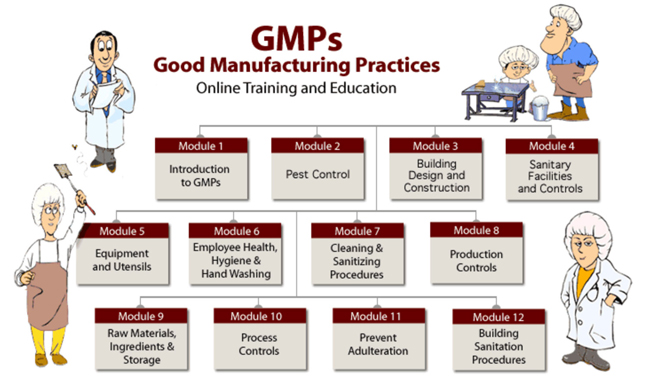
Good Manufacturing Practices: Training the Food Industry (pdf)
In 2016, New York Sea Grant facilitated the completion by 514 individuals representing 33 U.S. states and 15 foreign countries of Good Manufacturing Practices training. The online course is required by the U.S. Food and Drug Administration of food manufacturers, processors, wholesalers, distributors and storage workers.
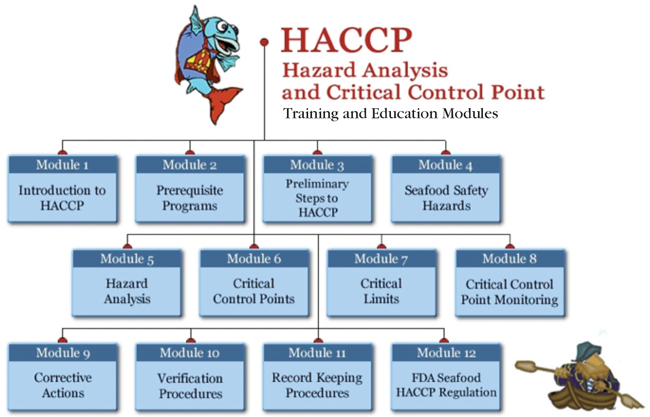
HACCP Internet Training: Enhancing Seafood Safety (pdf)
In 2016, New York Sea Grant facilitated the completion of online Hazard Analysis Critical Control Point food safety training for seafood businesses by some 1,272 individuals from 46 U.S. states, the District of Columbia, Puerto Rico, and 11 foreign countries.
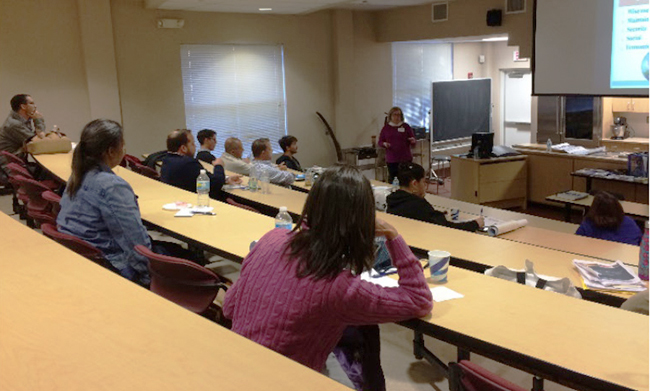
2016 Seafood Summit: A First for New York (pdf)
New York Sea Grant initiated a Seafood Summit to identify the key issues and concerns of seafood industry stakeholders as a foundation for developing research and extension programs that directly address current needs.
Impact statement for projects in New York’s marine district include:
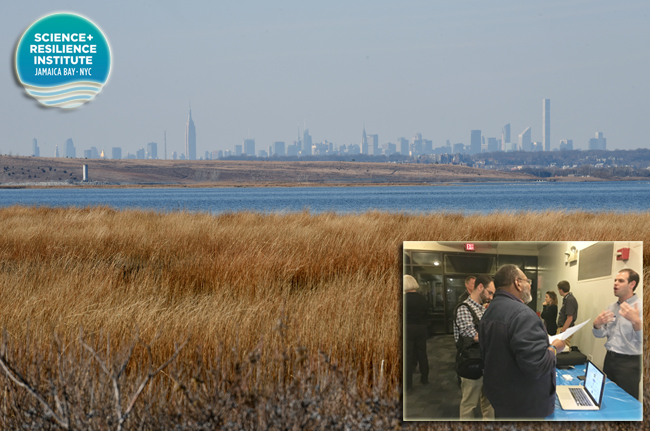
First Climate Forum Held for NYC Coastal Communities (pdf)
This New York City-based Sea Grant co-sponsored Climate Forum series brings climate experts together with local decision-makers and community members to share perspectives and values as well as climate-related information and resources.
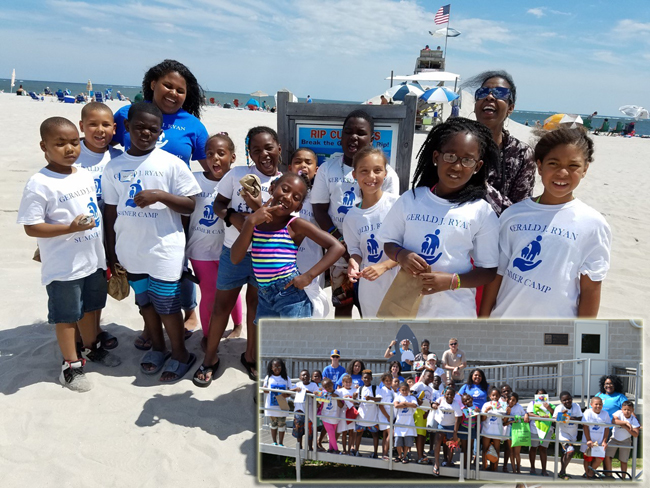
Marine Education in Minority Communities: Secrets of Great South Bay Marine Camp (pdf)
Outreach opportunities - including a special summer marine “mini camp” in Long Island's Western Suffolk County - have helped to engage minority youths in marine sciences classes and suggest alternate career choices.
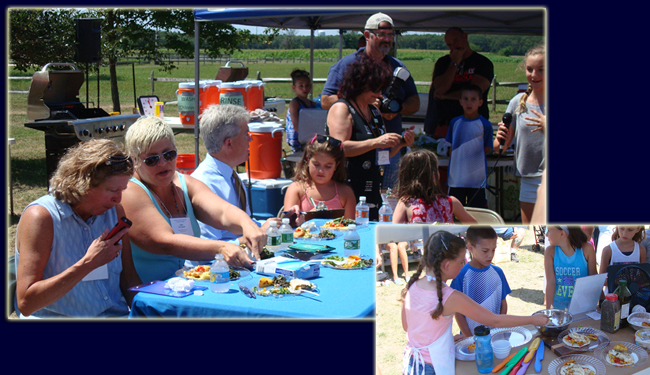
Empowering Public Support for Local Seafood: Celebrating Grown on Long Island Day (pdf)
To encourage ongoing public support of local seafood in 2016, New York Sea Grant continued its partnership with organizers of the annual “Celebrate Grown on Long Island Day” farmers market at the Suffolk County Extension Farm, an event which saw participating by an estimated 1,200 people.
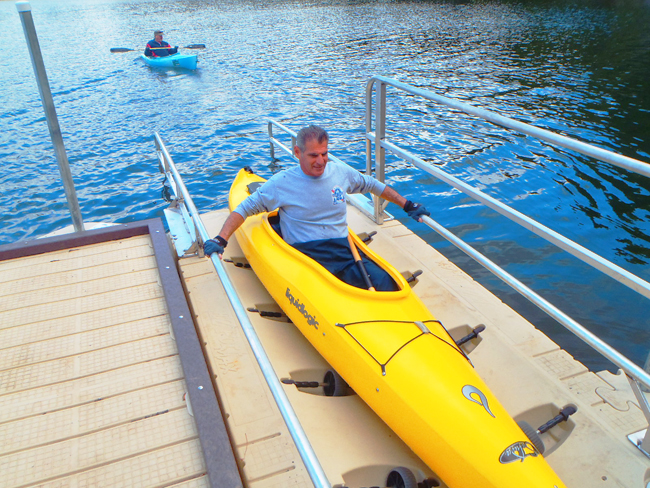
Advancing Universal Access to Waterfront Recreation Along the Hudson Estuary (pdf)
In recent years, New York Sea Grant has worked with multiple partners to increase Americans with Disabilities Act (ADA)-compliant waterfront access along the 100 miles of shoreline on both sides of the Hudson River for people with disabilities and mobility issues.
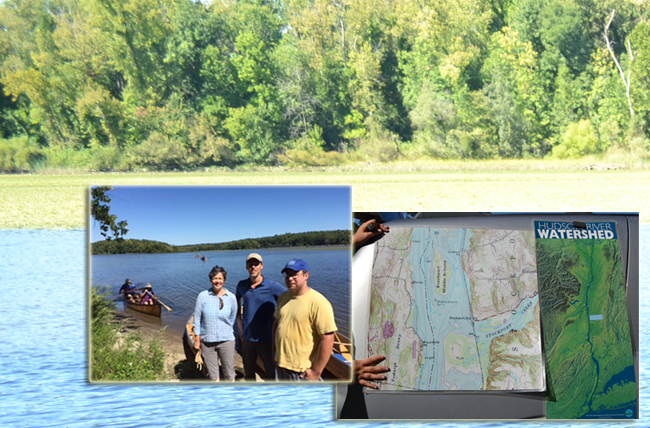
NYSG Coastal Storm Education & Student Scholar Along NY’s Hudson Estuary (pdf)
In partnership with the NOAA Coastal Storms Program and Virginia Sea Grant, New York Sea Grant mentored 2016-2017 Mid Atlantic Coastal Storms Fellowship recipient Chris Nack. This regional fellowship supports graduate student research related to coastal resilience and the impacts of extreme weather events.
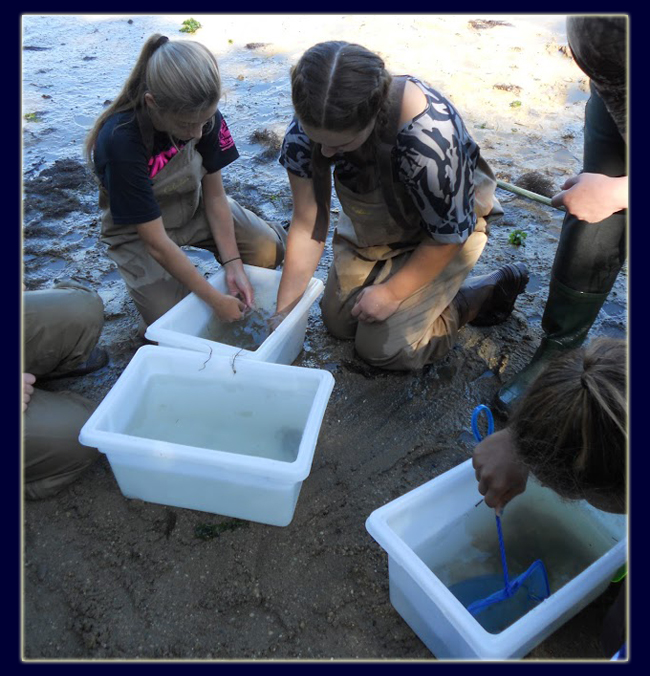
National Geographic Lauds Long Island Sound Stewards K-College Citizen Science Program (pdf)
New York Sea Grant’s Long Island Sound Stewardship Initiative protects ecologically, recreationally and economically important areas. To date, more than 3,800 K-college students have been engaged in this citizen science programming that has led to further restoration of important habitats in the Long Island Sound ecosystem.
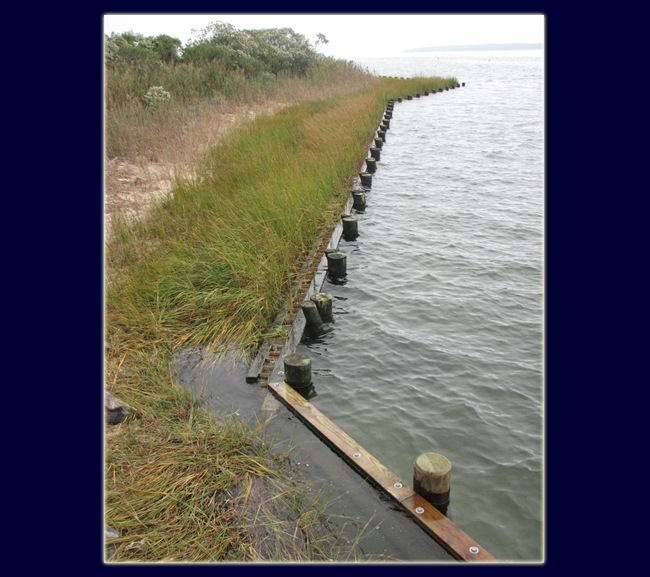
Advancing Living Shorelines for New York State (pdf)
New York Sea Grant leads an ongoing effort to increase awareness of living shorelines, a broad term encompassing a range of shoreline stabilization techniques along estuaries, bays, tributaries, and other sheltered shorelines . . . made mostly of native material, incorporating vegetation or other living natural elements with harder shoreline structures such as oyster reefs, rock sills, or anchored wood. Through a series of presentations and advisement sessions with industry, government and private entities, Sea Grant provides technical information on the siting and design of these structures, identifying impediments to their use in New York.
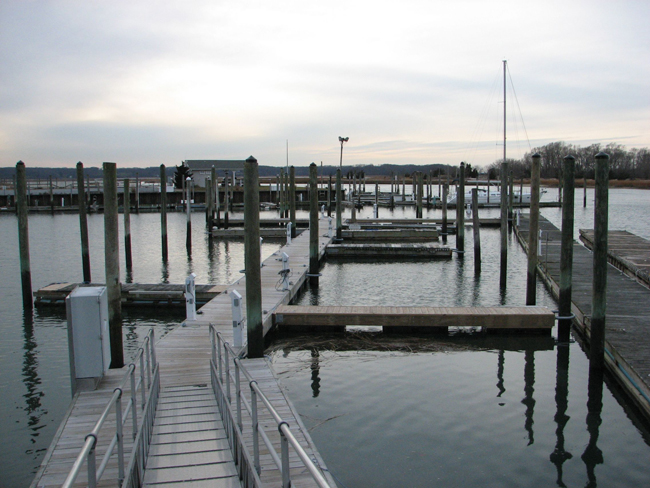
Marinas’ Recovery from Sandy Continues (pdf)
Through 2016, New York Sea Grant has helped NY’s marinas obtain more than $10 million in post-Superstorm Sandy grants to rebuild and repair their facilities post-Sandy.
Impact statement for projects in New York’s Great Lakes district include:
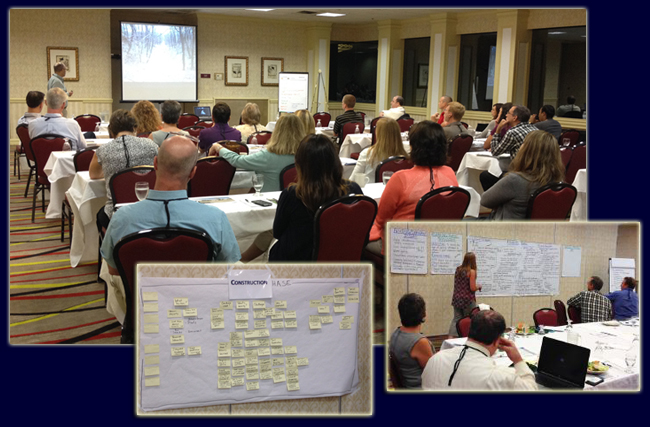
NYSG Facilitates City-County Green Infrastructure Collaborative (pdf)
In 2016, New York Sea Grant helped establish a City of Rochester-Monroe
County Green Infrastructure Collaborative that will publish a localized
green infrastructure retrofit design and maintenance standards guidance
document in 2017. The document will help local leaders address
stormwater, flooding and water quality issues.
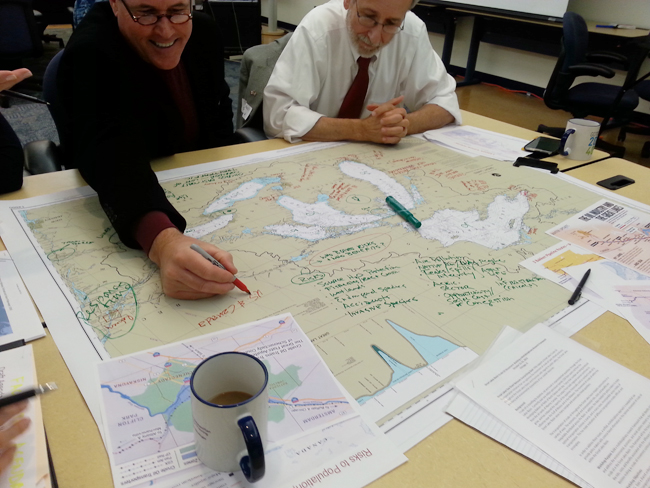
Mapping the potential impact of crude oil transport in the Great Lakes.
Applying Science to Understanding Crude Oil Transport in the Great Lakes and Beyond (pdf)
New York Sea Grant is helping stakeholders throughout the Great Lakes system apply science to the understanding of crude oil transport by multiple modes of transportations. Crude oil production from North Dakota’s Bakken oil fields and the Alberta tar sands has begun to outpace pipeline capacity, pressuring other forms of transportation, including rail, truck and barge.
Through workshops, webinars and other activities attracting international audiences, New York Sea Grant is working with Great Lakes Sea Grant Network partners and others to help concerned stakeholders better understand the opportunities, risks, and hazards based on the best science and technology associated with the transport of crude oil in the Great Lakes, Lake Champlain and Hudson River watersheds.
In June 2017, the Sea Grant Network Great Lakes and Gulf Oil Spill Team will partner with the Great Lakes Commission and International Joint Commission to offer a workshop on the state of knowledge of oil transport-related environmental risk and infrastructure and lessons from the Gulf region of the U.S.
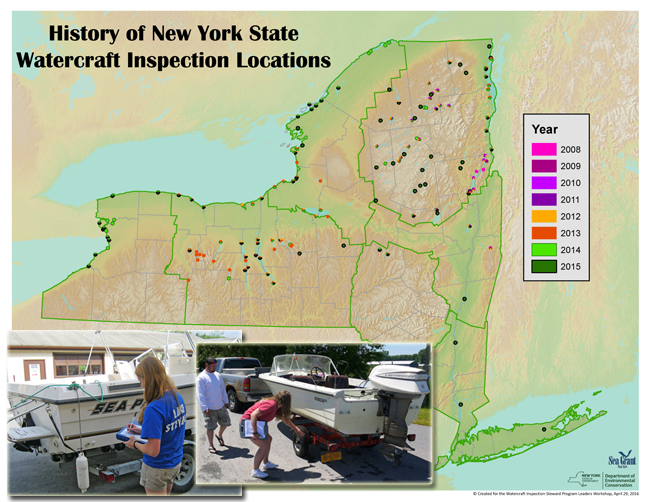
This map shows watercraft launch sites with WISP coverage through 2015.
Standardizing Watercraft Inspection, Reducing AIS Impact (pdf)
Regarding opportunities for recreational boaters to help slow the spread of aquatic invasive species, New York Sea Grant has become the leader in assisting established and new watercraft inspection steward programs (WISP) statewide with standardizing practices to increase public engagement in efforts to slow or stop the introduction and transport of ecologically-harmful aquatic invasive species via recreational boating equipment.
Watercraft inspection provides a mechanism for public outreach and education about the threats of ecologically harmful aquatic invasive species (AIS) and the importance of watercraft inspection and natural resources. Statewide standardization helps increase public awareness of AIS and the need for watercraft inspection, and public compliance with efforts to slow or stop the introduction and transport of invasive species via recreational boating equipment.
Workshop and focus group participants in 2016 provided input for the development of standardized WISP program development tools and a steward training protocol. The new resources will be available in 2017.
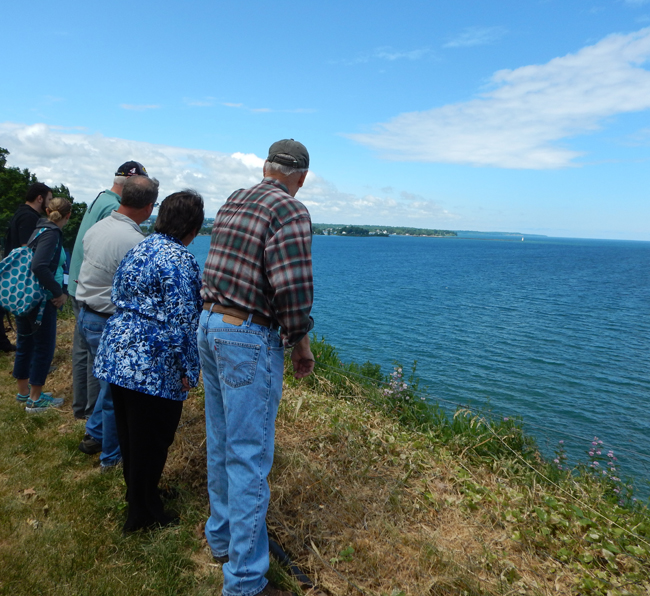
NYSG has led tours for highlight the types of shoreline management
projects permissible in New York State for diverse audiences that
include municipal leaders, engineers, Soil and Water Conservation
Districts, and citizen groups.
Informed Shoreline Management Planning (pdf)
Public and private owners of shoreline property interested in building resiliency in the face of changing climatic conditions and storms can draw on NYSG resources that include information on shoreline management practices using both vegetative, soil and structural elements, and green infrastructure approaches for addressing stormwater, flooding and water quality issues.
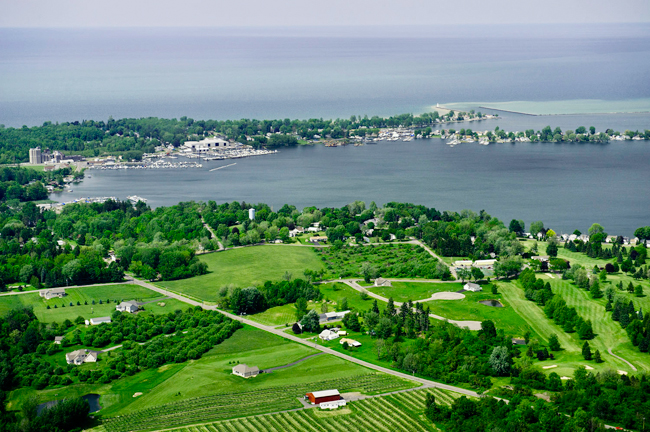
Enhancing Lake Ontario Climatology to Build Resiliency (pdf)
In 2016, New York Sea Grant worked with key partners to assess long-term
risks associated with historic storm impact events to build a
first-ever climatology baseline for two critical geographic areas along
eastern Lake Ontario Sodus Bay and the Eastern Lake Ontario Dune and
Wetlands Area. This resource is Lake Ontario’s equivalent to tracking
Super Storm Sandy-type storms downstate.
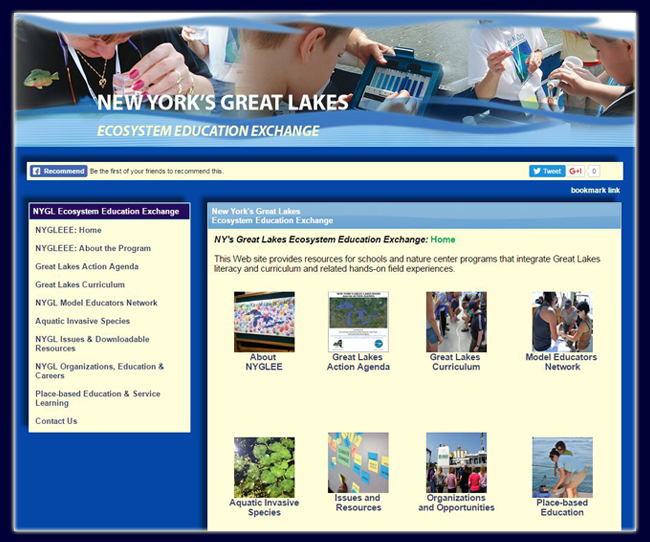
New York Sea Grant applies a teach-the-teacher approach to exponentially extend environmental education to thousands of students across New York State.
NY Great Lakes Ecosystem Education Exchange: Building Coastal Literacy (pdf)
Teachers can access K-12-level resources for schools and nature center programs through www.nyseagrant.org/gleee, New York Great Lakes Ecosystem Education Exchange (NYGLEEE) developed by New York Sea Grant.
To ensure the next generation of citizens is well-prepared to make sound decisions that consider and contribute to improving the health of New York’s Great Lakes, New York Sea Grant and the New York State Department of Environmental Conservation are partnering with educators in the state’s Great Lakes watershed to develop the NYGLEEE as an experiential environmental education program.
NYSG's Web site, which launched in the spring of 2017, provides a portal through which users can access resources for schools and nature center programs that integrate Great Lakes Literacy Principles with K-12 classroom instruction and hands-on field experiences.
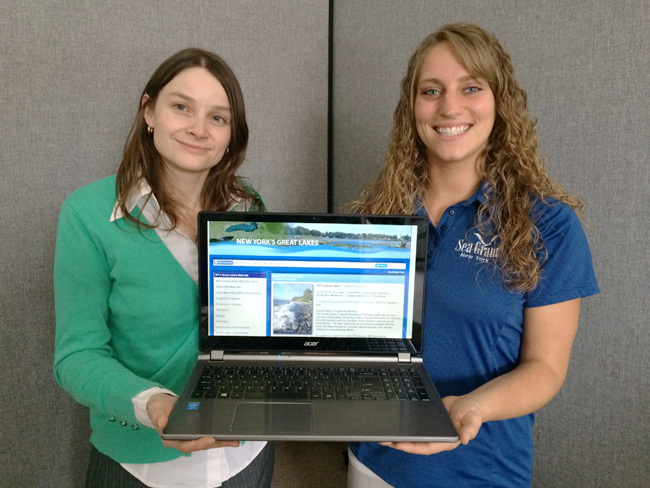
NYS Department of Environmental Conservation Great Lakes Program Eastern Great Lakes Watershed Coordinator Emily Sheridan, left, and website development project leader Brittney Rogers of New York Sea Grant show a page from the new online clearinghouse portal to information on NY’s Great Lakes region.
NY Great Lakes Information Clearinghouse Now Online (pdf)
River region residents who want to keep informed about Great Lakes topics can go to the NY Great Lakes Information Clearinghouse web portal launched in 2016 through a partnership of New York Sea Grant and the New York State Department of Environmental Conservation.
Through the www.nyseagrant.org/nygreatlakes website portal users can find details on New York’s Great Lakes Action Agenda priorities, coastal processes, ecosystems, fisheries, energy, recreation and tourism, water quality, research, and grant opportunities.
Users can submit comments and questions via the Contact Us feature and subscribe to the NY Great Lakes Basin listserv for news, funding opportunities and event notices. Funding for the website was provided through the New York State Environmental Protection Fund and Article 14 of Environmental Conservation Law.
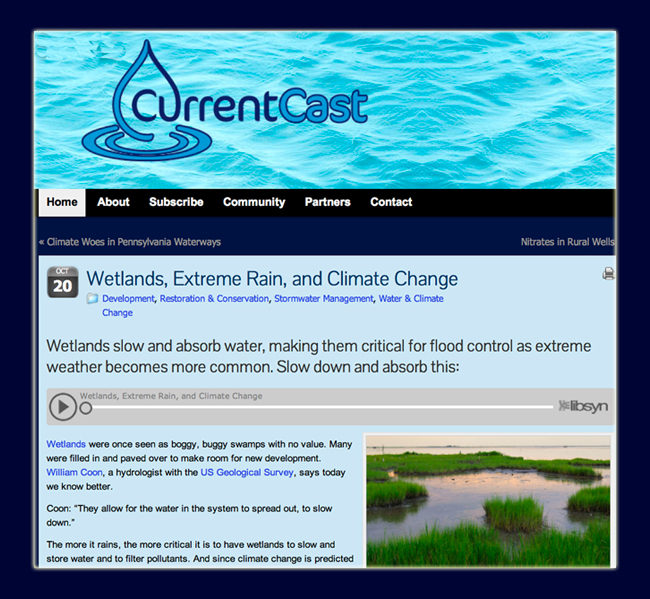
Podcasts posted at currentcast.org are available for sharing important content.
CurrentCast Radio/Podcasts: Education for NY Great Lakes Resilient Communities and Economies (pdf)
In 2016, New York Sea Grant funded and directed the development of 20 syndicated radio ‘information bursts’ and podcasts about water stewardship on the Great Lakes and surrounding watersheds.
The 60-second, sound-rich CurrentCast segments address such topics as invasive species, stormwater management, shoreline protection, riparian restoration, flooding and erosion prevention, wetlands, and green infrastructure in New York’s Great Lakes basin. The segments broadcast via radio stations throughout the Great Lakes, through the CurrentCast syndicate of more than 50 stations.
The podcasts posted at currentcast.org are available for content-sharing with interested organizations. The practices addressed in this series are easily applicable to the St. Lawrence River environment.
More Info: New York Sea Grant
New York Sea Grant (NYSG), a cooperative program of Cornell University
and the State University of New York, is one of 33 university-based
programs under the National Sea Grant College Program (NSGCP) of the
National Oceanic and Atmospheric Administration (NOAA). The NSGCP
engages this network of the nation’s top universities in conducting
scientific research, education, training and extension projects designed
to foster science-based decisions about the use and conservation of our
aquatic resources. Through its statewide network of integrated
services, NYSG has been promoting coastal vitality, environmental
sustainability, and citizen awareness about the State’s marine and Great
Lakes resources since 1971.
New York Sea Grant maintains Great Lakes offices at SUNY Buffalo, the
Wayne County Cooperative Extension office in Newark and at SUNY Oswego.
In the State's marine waters, NYSG has offices at Stony Brook University
and Stony Brook Manhattan, in the Hudson Valley through Cooperative
Extension in Kingston and at Brooklyn College.
For updates on Sea Grant activities: www.nyseagrant.org has RSS, Facebook, Twitter, and YouTube links. NYSG produces a monthly e-newsletter, "NOAA Sea Grant's Social Media Review," via its blog, www.nyseagrant.org/blog. Our program also offers a free e-list sign up via www.nyseagrant.org/coastlines for its flagship publication, NY Coastlines/Currents, which is published 1-2 times a year.